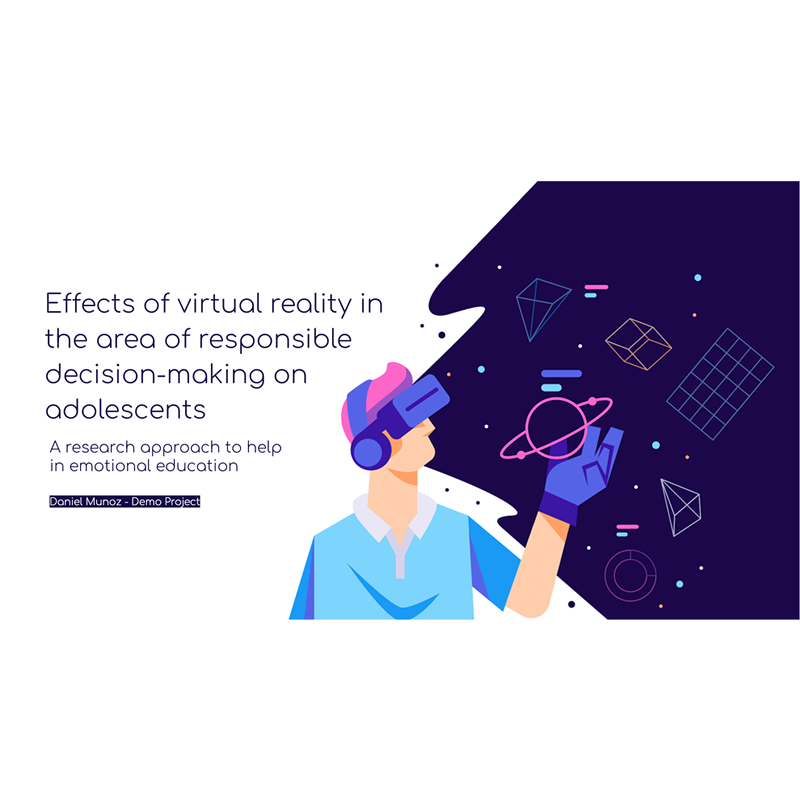This study aims to identify how VR experiences impact the learning of a specific emotional dimension on adolescents (responsible decision-making RDM) and identify which cognitive and experience elements have incidence in the design of the learning experience. Based on literature and theories of VR and learning sciences, we conducted an experiment using VR on learning sessions with a control group based in ethical and emotional situations using the SODAS method to learn responsible decision making. Results show that the VR group gets a higher score after the sessions, and qualitative and quantitative data reveals that learning timing, cognitive articulation, learning attribution, cognitive load, and specific emotional dimensions might be impacted by emotional learning experience. The analyses provide helpful information for the further design of cognitive experiences on VR technology.

